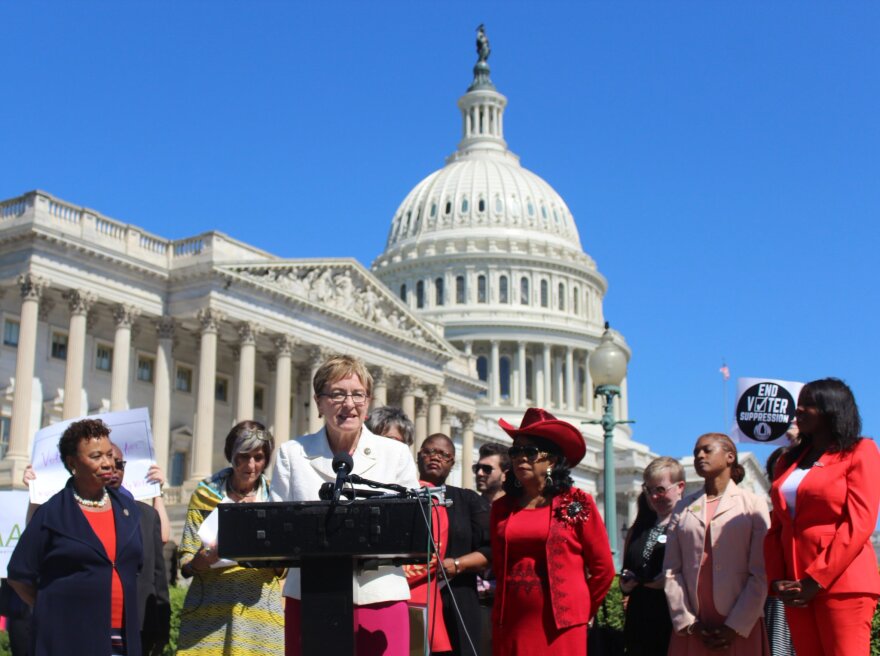The longest-serving woman in U.S. House history blamed partisan gerrymandering on Wednesday for making "a mess" of Congress and harming the nation.
Rep. Marcy Kaptur (D-Toledo) testified via video on the final day of testimony in a federal lawsuit brought by voter rights groups that challenges Ohio's congressional map as unconstitutional.
A ruling is expected within weeks on the case, which could result in a change of the congressional map for 2020 elections. The decision is likely to be appealed to the Supreme Court. The top court is already preparing to hear arguments March 26 on alleged gerrymandering in North Carolina by Republicans and in Maryland by Democrats.
The 19th-term congresswoman expressed outrage over Republican-controlled redrawing of her 9th district ahead of the 2012 elections.
"The district was hacked apart," she said, calling her reaction "astonishment" when she saw a new map that stretched eastward in a skinny line along Lake Erie all the way into Cleveland. Critics of the remap have dubbed it "the Snake by the Lake" for its shape.
But Kaptur said gerrymandering in multiple U.S. states has made House members in the safe seats less responsive to chopped-up communities and unwilling to compromise in Washington.
"That's why Congress is in such a mess," Kaptur said. "It has hurt America."
The Ohio remap forced a primary battle that Kaptur won over fellow Rep. Dennis Kucinich, a former Cleveland mayor who has run for president. She said she absolutely didn't want to oppose a congressional colleague.
Under questioning by Mark Braden, an attorney representing Republican House members from Ohio, Kaptur acknowledged that her home area had lost population in the 2010 U.S. Census, and that U.S. population shifts meant the state had to lose two House seats.
Republicans have noted repeatedly that each side lost one seat in the remap, and that the plan had bipartisan support. Two GOP incumbents were placed in the same district, but one decided not to run in 2012.
Since the redraw, Ohio's congressional delegation has remained at 12 Republicans and four Democrats, with few competitive general election races. Kaptur said repeatedly that Ohio, carried twice by Democrat Barack Obama in presidential elections before Republican Donald Trump won it in 2016, has traditionally been a swing state.
Former U.S. House speaker John Boehner, R-West Chester, had been on the potential witness list but wasn't called.



